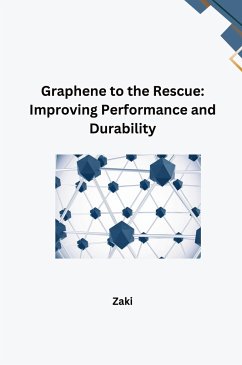
Beyond Promise: Overcoming Challenges to Harness the Power of Graphene
Versandkostenfrei!
Versandfertig in 6-10 Tagen
28,79 €
inkl. MwSt.

PAYBACK Punkte
0 °P sammeln!
Specifically, the domain of Flexible Hybrid Electronics (FHE) is rapidly evolving and has emerged as a game-changer in the semiconductor industry. FHE technology combines rigid and flexible electronic components to offer innovative applications transforming various industries. Organizations like NextFlex and SEMI FlexTech in the United States have been at the forefront of driving advancements in FHE. Their relentless efforts to advance research and development in FHE have led to significant progress in the domestic manufacturing capabilities of this transformative technology. The Department of...
Specifically, the domain of Flexible Hybrid Electronics (FHE) is rapidly evolving and has emerged as a game-changer in the semiconductor industry. FHE technology combines rigid and flexible electronic components to offer innovative applications transforming various industries. Organizations like NextFlex and SEMI FlexTech in the United States have been at the forefront of driving advancements in FHE. Their relentless efforts to advance research and development in FHE have led to significant progress in the domestic manufacturing capabilities of this transformative technology. The Department of Defense (DoD) has recognized the strategic importance of FHE in maintaining and advancing U.S. leadership in cutting-edge defense technologies. In partnership with NextFlex, the DoD invested a whopping $154 million in 2020 to expedite the commercialization of prototype technologies developed by the Army using FHE41. This investment underscores the DoD's commitment to FHE and highlights its potential to revolutionize the defense industry.














